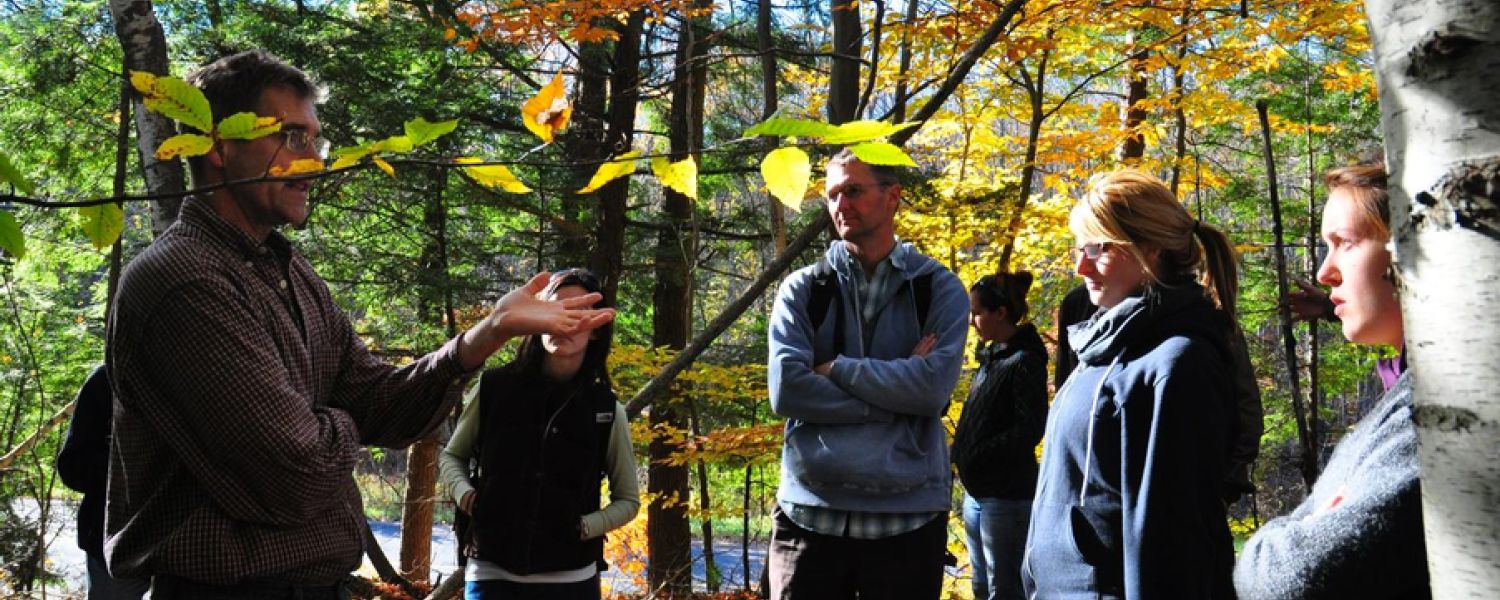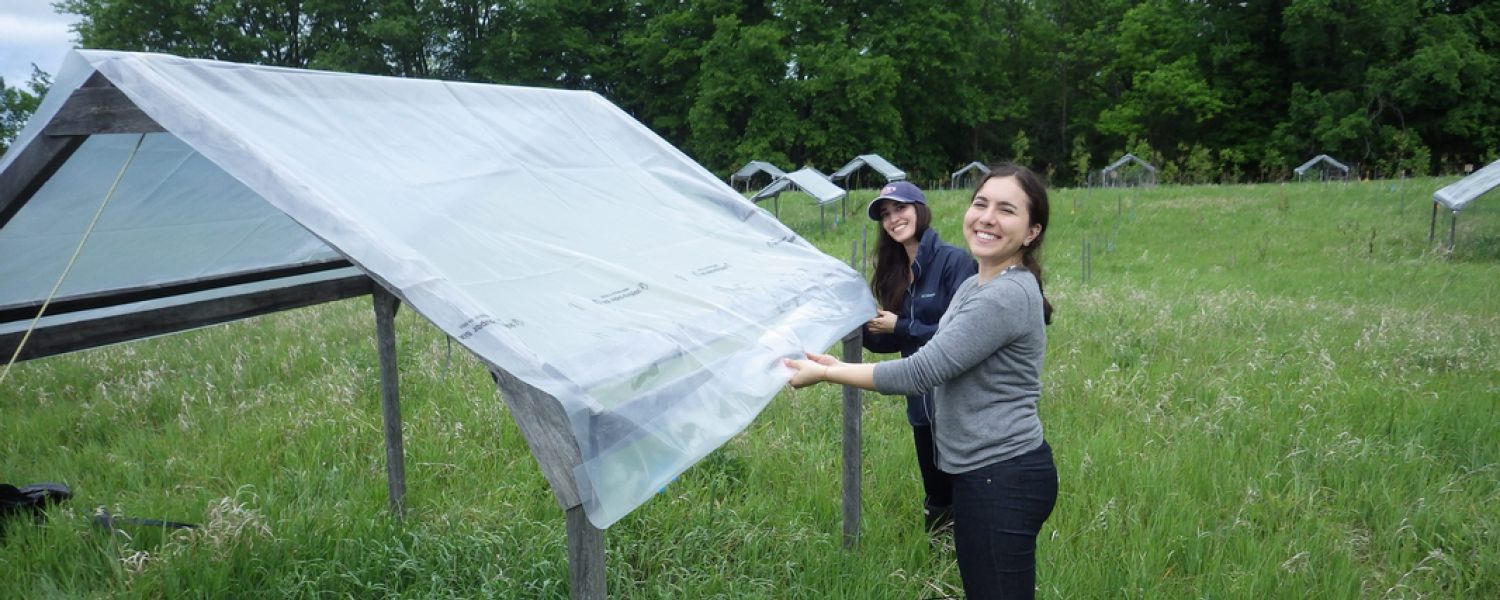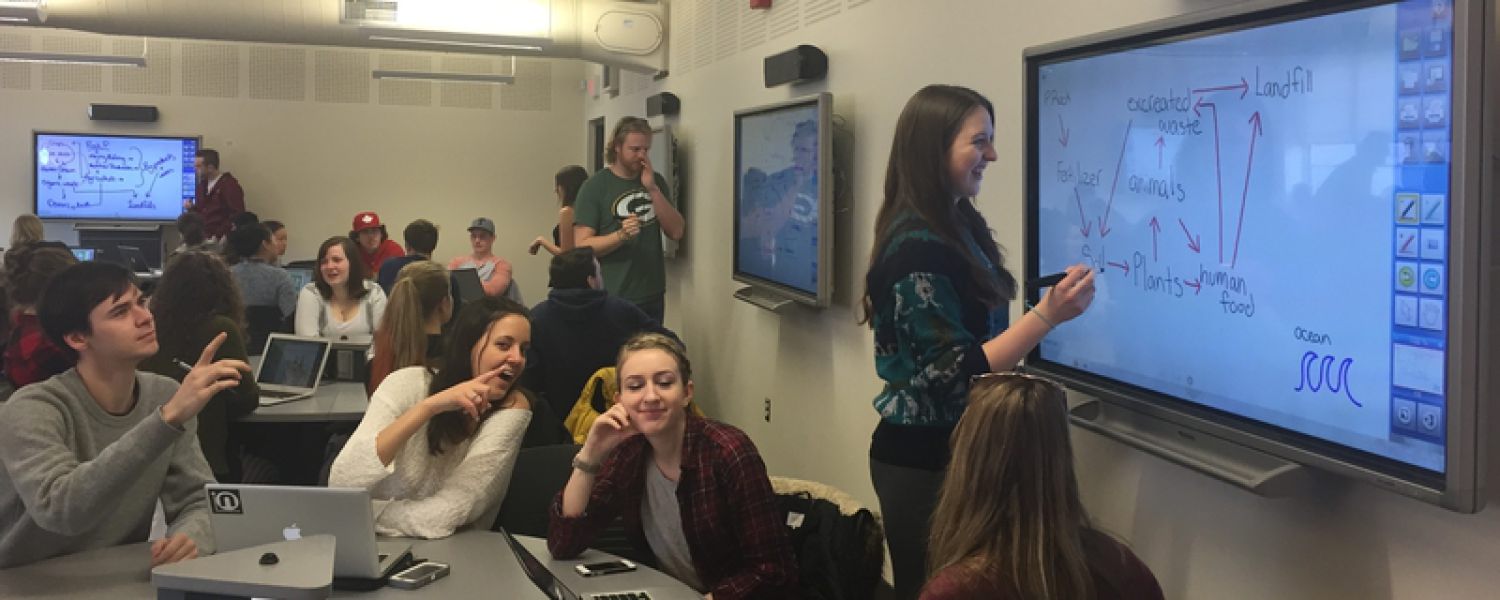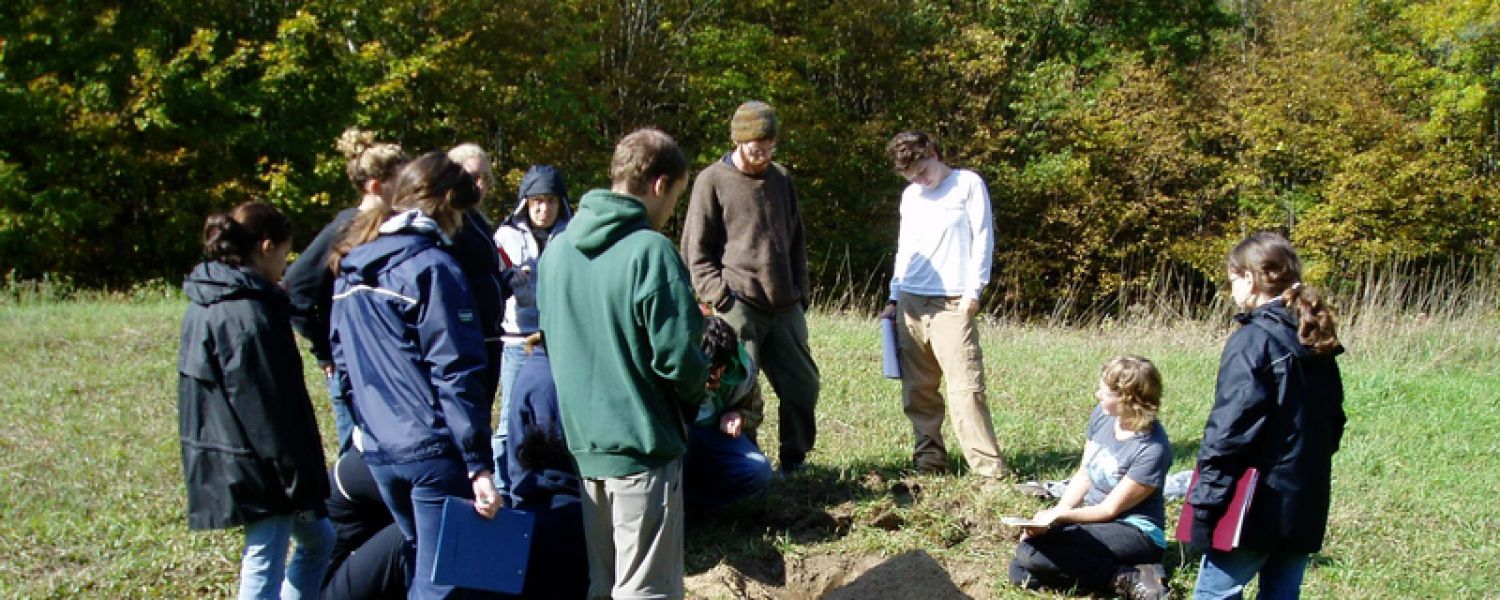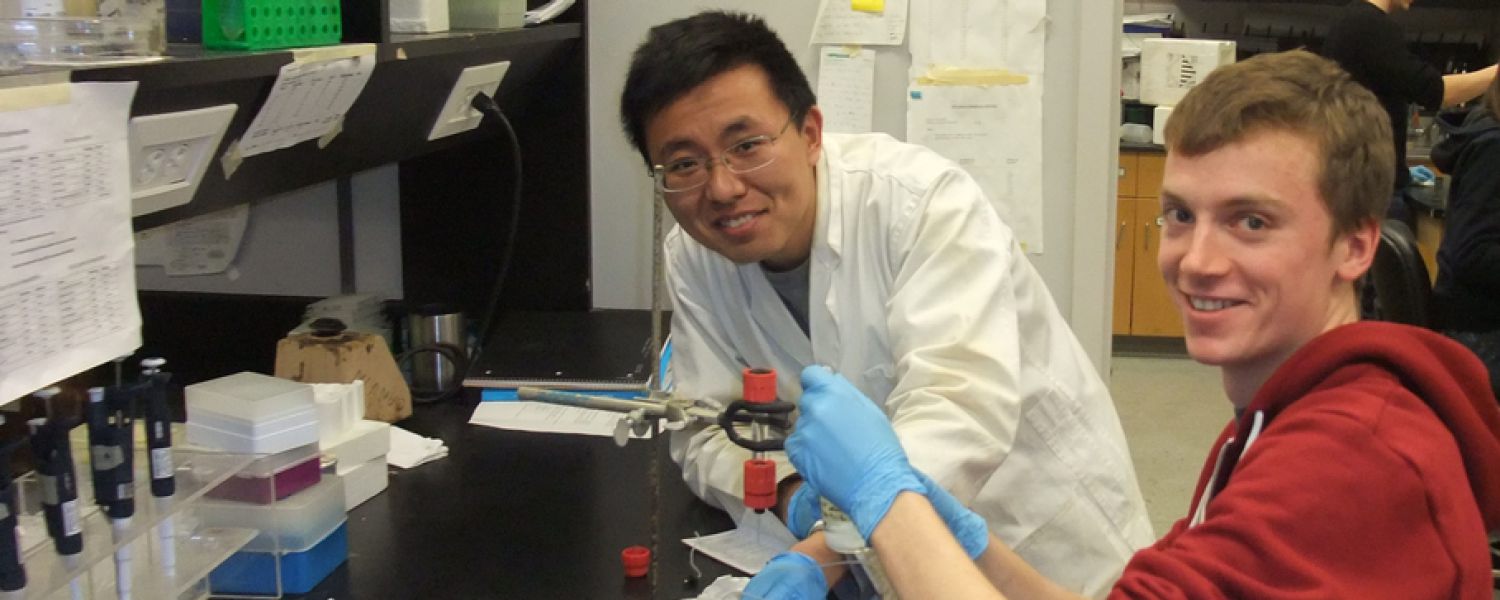The Department of Biology is committed to providing an environment that fosters equal rights and opportunities for all, in an environment of mutual respect and dignity. Our mission is to produce engaged, independent, reflective, critically thinking graduates who will be inspired and able to actively contribute to the improvement of society. One way we encourage this is by creating a true sense of community among faculty, staff and students. We are proud of the collegial atmosphere in our Department that extends not just among the faculty, but also support staff and most importantly, the graduate and undergraduate students. As an undergraduate, you would have many opportunities to chat, discuss, participate and work alongside with professors and the other specialist instructional staff. We all work together to learn together.
Our program is designed to provide multiple experiential learning opportunities. For example, students can gain experience in our labs and doing field work through paid positions supported by the Queen’s Summer Work Experience Program or lab research assistantships (see Awards and Opportunities for more information). In addition, many students take on volunteer positions in our labs for a few hours a term. These are all great learning experiences for the students, are the basis for meaningful letters of reference for the next career steps after graduation, and contribute to Biological research. These experiences complement lecture and seminar material, and are win-win opportunities that greatly enhance student learning and competitiveness for graduate programs and employers after leaving Queen's.
In the Queen’s Biology program, you…
- Interact closely with professors. You will be able and encouraged to regularly discuss ideas one-on-one and as groups with professors and other instructional staff. Formal opportunities include discussions during and at the end of lectures, as well as seminars and journal clubs. Informal opportunities include hallway chats, organized social events such as the start of year barbeque/party, each semester’s ‘crops with profs’, the Biology Christmas party, the DSC end of year barbeque, and the Biology Banquet.
- Get involved in Biology groups. There are a number of Biology groups on campus including a very active student-led Departmental Student Council, the Society of Conservation Biology – Kingston chapter, the Queen's Applied Biotechnology Club, and the Queen's Genetically Engineered Machine (QGEM)Team.
- Participate in seminars and journal clubs. We have a departmental seminar series (Tuesday at 1:30, rm. 3110 Biosciences) and a graduate seminar series (Thursday at 12:30, rm. 3110). These seminars cover the breadth and integration of biology from the molecule to the ecosystem. The graduate seminars cover the diverse and integrative research that is ongoing in our department where you can learn about a wide spectrum of Biological research.
- Do independent research. Students can complete a full honours thesis or shorter research project that includes substantial student-driven independent research in the lab of one of our faculty, seminar and poster presentations, a thesis defence, and may even lead to a publication in a peer-reviewed science journal (see Courses for more information).
- Take small 4th year discussion-based seminar courses. These small-enrolment courses are focused on cutting-edge emerging topics in Biology and are largely student-driven in terms of individual seminar choice, discussion leadership, and final conclusions (see Courses for more information).
- Do field work at our field station (see QUBS for more information) 50 km north of Kingston that includes extensive aquatic and avian research facilities as well as student housing, new labs, and a library. Queen's is part of the Ontario University Program in Field Biology -- this program offers a variety of opportunities from top universities across Ontario, including many offered by our faculty.
- Do experimental research in our extensive greenhouse, growth chamber, and cell-culture facilities, and a tropical conservatory.
- Use state-of-the-art research infrastructure including a Laser Scanning Confocal/Multiphoton Microscope, a Typhoon Phosphorimager, and an Illumina MiSeq gene sequencer.
